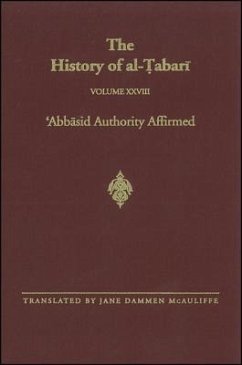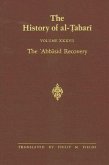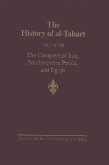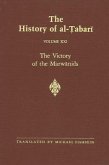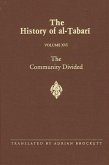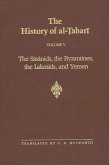The initial years (126-145) of al-Mansur's reign presented several significant challenges to nascent Abbasid hegemony, and the resulting confrontations constitute the central focus of this section of Tabari's Tarikh. After Abu Jafar succeeded his brother Abu al-Abbas as caliph, the second of the Abbasid dynasty, he moved against his recalcitrant uncle, Abdallah b. Ali, and against the potential threat that he perceived in the person of the commander in Khurasan, Abu Muslim. Eliminating the latter and containing the former freed the caliph to address a series of other onslaughts and insurrections. Starting with the year 144, however, Tabari turned to this volume's principal preoccupation, to which half of the book is devoted. Judging by the attention given to it, he clearly perceived the Hasanid rebellions of Muhammad b. Abdallah (the Pure Soul) and of his brother Ibrahim to be the most substantial attack on Abbasid authority to arise in the first years of that dynasty. Tabari's description of the prolonged search for Muhammad and Ibrahim and of the caliphal vengeance visited upon their father and family provides an extended prelude to the vivid battle and death scenes in Medina and Bakhamra. Yet, elaboration of these events does not eclipse mention of all other Abbasid activity. To bridge the account of Muhammad's defeat and that of Ibrahim's uprising, Tabari inserted a narrative interlude depicting the site selection and preliminary construction of al-Mansur's most celebrated achievement, the City of Peace, Baghdad.
Hinweis: Dieser Artikel kann nur an eine deutsche Lieferadresse ausgeliefert werden.
Hinweis: Dieser Artikel kann nur an eine deutsche Lieferadresse ausgeliefert werden.

